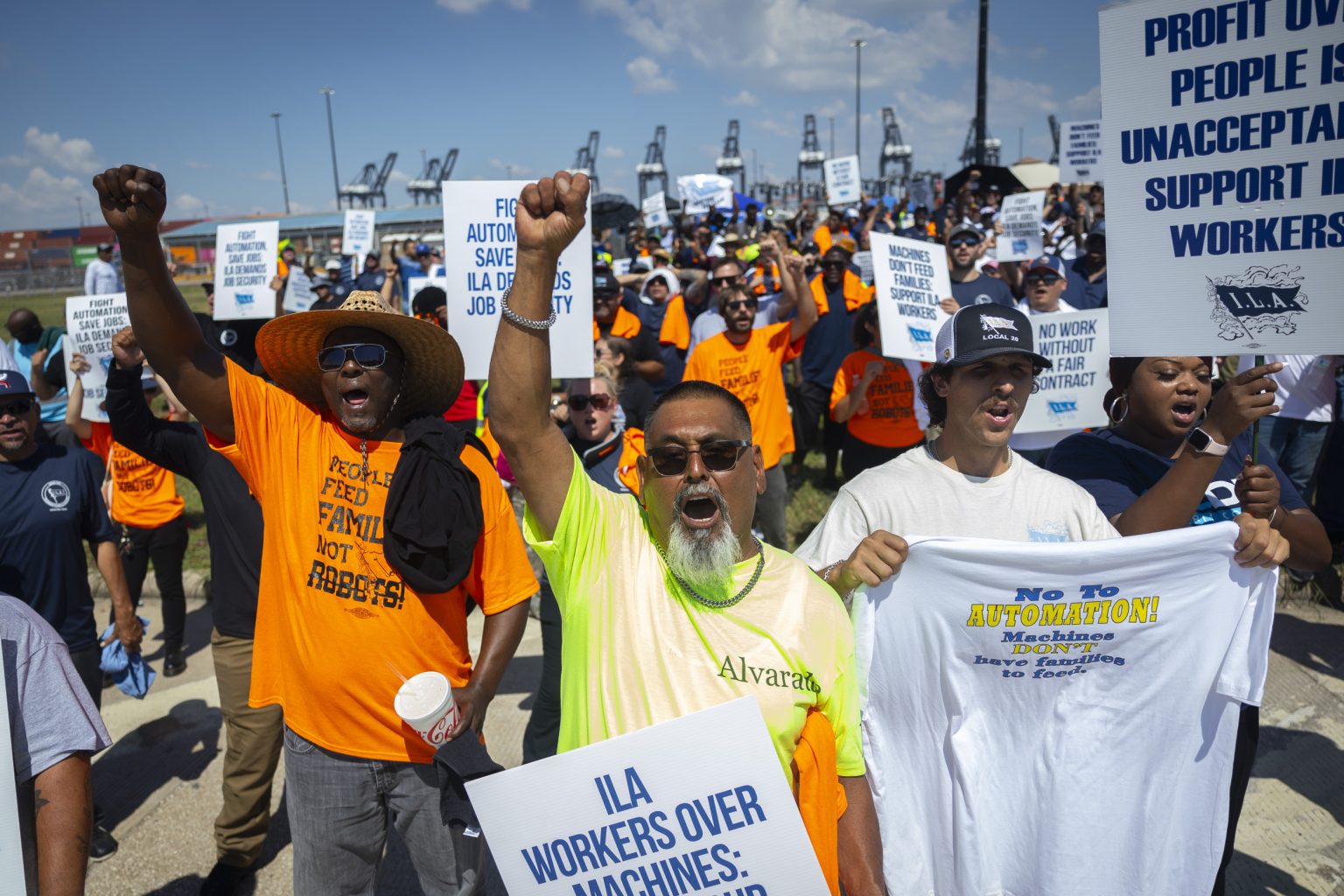Hamid Moghadam, the CEO of Prologis, a global real estate company specializing in warehousing, has stated that his business will benefit from the port strikes that have been ongoing since October 1. Despite concerns about the strikes causing havoc and disrupting supply chains, Moghadam believes that there will be an increase in demand for Prologis’ products as a result of the strikes. He acknowledges that the strikes will have a dampening effect on the overall economy but emphasizes that all goods still require storage space, which will benefit his business.
Prologis, known for being Amazon’s largest landlord, develops and acquires logistics real estate globally. While Moghadam sees a short-term positive impact on his business due to the strikes, he expresses discomfort in profiting from such circumstances that are ultimately detrimental to the economy. The strikes, a result of a pay dispute between the International Longshoremen’s Association (ILA) union and the United States Maritime Alliance (USMX), have affected tens of thousands of longshoremen along the East and Gulf Coasts. Last year, a similar strike on the West Coast caused disruptions in supply chains, highlighting the potential long-term effects that such strikes can have on business operations.
Although Moghadam believes that it will take time for supply chains to adjust and normalize even if the strikes were to end immediately, he anticipates shifts in business and cargo distribution between ports. With the strikes occurring just a month before the presidential election, he also speculates that they may become politicized. The International Brotherhood of Teamsters, in solidarity with the ILA, have criticized the Biden administration for its handling of the negotiations, marking a departure from their previous endorsement of Democratic candidates. The potential political implications of the strikes further complicate the situation and may impact the outcome of the election.
Despite the turmoil caused by the ongoing strikes, Moghadam remains optimistic about the future prospects of Prologis. As a company heavily involved in the logistics real estate sector, Prologis is well-positioned to capitalize on the increased demand for storage space resulting from the disruptions in supply chains. Moghadam’s comments highlight the complexities of balancing short-term gains with long-term sustainability and ethical considerations. The evolving situation surrounding the strikes, including potential political ramifications, adds another layer of uncertainty to an already challenging business environment.
In conclusion, the CEO of Prologis, Hamid Moghadam, believes that his company will benefit from the ongoing port strikes despite the negative impact on the economy and supply chains. While acknowledging the disruptive nature of the strikes, Moghadam sees an increase in demand for Prologis’ products as a result of the need for storage space. The strikes, resulting from a pay dispute between the ILA and USMX, have affected longshoremen along the East and Gulf Coasts, with potential political implications leading up to the presidential election. The complex interplay between short-term gains, long-term sustainability, and ethical considerations illustrates the challenges faced by businesses operating in a volatile economic environment.








